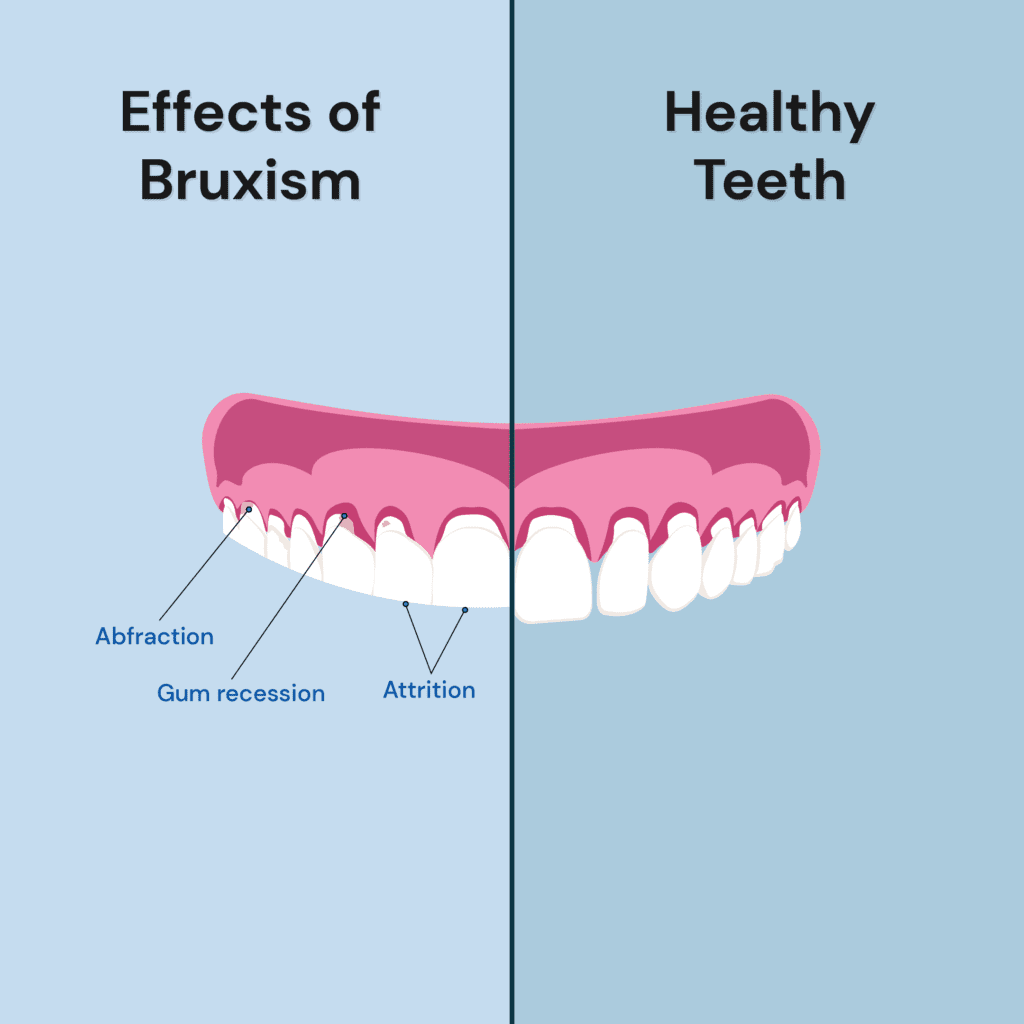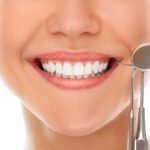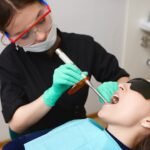Table of Contents
What is Bruxism?
Bruxism is a dental condition characterized by the involuntary grinding and clenching of teeth. It can occur during the day or at night, during sleep, and affects both children and adults alike. While occasional teeth grinding may not be a cause for concern, persistent and excessive bruxism can lead to various dental problems and discomfort.
The exact cause of bruxism is not fully understood, but it is believed to be a combination of physical, psychological, and genetic factors. Stress and anxiety are often associated with bruxism, as well as sleep disorders such as sleep apnea. Additionally, certain medications and dental conditions like malocclusion and temporomandibular joint disorders (TMJ) have been linked to the development of bruxism. It is important to note that a proper diagnosis by a dental professional is crucial for effective treatment and management of bruxism.

Signs and Symptoms of Bruxism
Bruxism, also known as teeth grinding, is a common dental condition that affects millions of people worldwide. Unfortunately, many individuals may be unaware that they are grinding their teeth because it often occurs during sleep. However, there are several signs and symptoms that can indicate the presence of bruxism.
One of the most noticeable signs of bruxism is the grinding or clenching of teeth. This can occur during the day or night, and may be accompanied by a clicking or popping sound in the jaw. Another common symptom is jaw pain or soreness, which can extend to the face, ear, or neck. Additionally, bruxism can lead to headaches, tooth sensitivity, and even damage to the teeth themselves, such as worn down enamel or chipped teeth.
It is important to note that not everyone who grinds their teeth will experience all of these symptoms, and the severity of symptoms can vary from person to person. If you suspect that you or a loved one may be suffering from bruxism, it is crucial to seek professional dental care for a proper diagnosis and appropriate treatment.
| Signs and Symptoms of Bruxism | Description |
|---|---|
| Teeth Grinding | The audible or silent grinding or clenching of teeth, often noticed during sleep or times of stress. |
| Jaw Pain | Pain or tenderness in the jaw joint (TMJ) area, often experienced upon waking up or throughout the day. |
| Headaches | Recurrent headaches, particularly in the temples or behind the eyes, due to muscle tension from grinding. |
| Tooth Sensitivity | Increased sensitivity to hot, cold, or sweet foods and beverages due to enamel wear caused by grinding. |
| Worn Tooth Enamel | Visible wearing down of tooth enamel, which can lead to flattened, chipped, or fractured teeth. |
| Facial Muscle Fatigue | Soreness or fatigue in the muscles of the face, especially upon waking up or after periods of stress. |
| Earaches | Unexplained earaches or pain, often due to the proximity of the jaw joint (TMJ) to the ears. |
| Disrupted Sleep Patterns | Difficulty falling asleep, staying asleep, or experiencing frequent awakenings due to bruxism-related discomfort. |
| Cheek Biting | Accidental biting of the inner cheeks or lips, often resulting in sores or irritation. |
| TMJ Clicking or Popping | Clicking, popping, or grating sounds in the jaw joint (TMJ) during movement, indicative of joint dysfunction. |
The Relationship Between Stress and Bruxism
Stress has long been recognized as a significant factor in the development and exacerbation of various health conditions, and bruxism is no exception. Bruxism, or the involuntary grinding and clenching of teeth, often occurs as a response to stress and anxiety. The body’s natural stress response triggers the release of hormones that can lead to muscle tension, including in the jaw area. This tension then manifests as bruxism, causing wear and tear on the teeth, jaw pain, headaches, and other discomfort.
Several studies have established a clear link between stress and bruxism. A research study conducted at a university dental clinic found that individuals who reported higher levels of stress experienced a higher incidence of bruxism compared to those with lower stress levels. Another study published in the Journal of Oral Rehabilitation suggested that psychological stress and anxiety were significant contributors to both awake and sleep bruxism.
It is crucial to recognize the relationship between stress and bruxism to effectively manage and prevent this oral health issue. By targeting the underlying stress factors through stress management techniques, such as relaxation exercises, mindfulness, and counseling, individuals can potentially reduce the frequency and intensity of their bruxism episodes. A multidisciplinary approach that involves collaboration between dentists, psychologists, and primary care providers may be necessary to address both the dental and psychological aspects of bruxism successfully.
How Anxiety and Depression Can Contribute to Bruxism
Anxiety and depression are mental health conditions that can have a significant impact on various aspects of a person’s life, including their oral health. It is well-documented that these psychological disorders can contribute to the development and exacerbation of bruxism, a condition characterized by the excessive grinding and clenching of teeth.
Research has shown that individuals who suffer from anxiety or depression are more likely to engage in bruxism compared to those without these mental health conditions. The relationship between anxiety, depression, and bruxism may be attributed to a number of factors. For instance, stress is a common symptom of both anxiety and depression, and it can cause individuals to unconsciously grind or clench their teeth while sleeping or even during waking hours. Additionally, anxiety and depression can affect sleep patterns, leading to disrupted sleep or insomnia, which further contribute to the development of bruxism. While the exact mechanisms underlying this connection remain the subject of ongoing research, it is clear that addressing anxiety and depression is an important aspect of managing and treating bruxism.
| Factors | Anxiety | Depression |
|---|---|---|
| Psychological Stress | Heightened stress levels can lead to increased muscle tension, including in the jaw area, exacerbating bruxism. | Feelings of hopelessness and sadness can manifest as physical tension, including clenching or grinding of teeth during sleep or waking hours. |
| Sleep Disturbances | Anxiety often disrupts sleep patterns, leading to poor sleep quality or insomnia, which can exacerbate bruxism. | Insomnia or disrupted sleep is a common symptom of depression, contributing to bruxism episodes during sleep. |
| Coping Mechanisms | Some individuals may clench or grind their teeth as a coping mechanism for anxiety, especially during times of heightened stress or anxiety attacks. | Depressed individuals may exhibit bruxism as a subconscious way to release tension or as a form of self-soothing behavior. |
| Neurochemical Imbalance | Anxiety disorders involve dysregulation of neurotransmitters like serotonin and norepinephrine, which can influence muscle tension and contribute to bruxism. | Depression is associated with altered neurotransmitter levels, potentially affecting muscle control and leading to bruxism. |
| Dental Health Awareness | Anxiety-driven concerns about dental health or appearance may lead to increased vigilance or tension in the jaw, exacerbating bruxism. | Individuals experiencing depression may neglect dental care or oral hygiene, leading to dental problems like bruxism due to lack of self-care motivation. |
Bruxism and Sleep Disorders
Bruxism, or teeth grinding and clenching, is a common condition that affects individuals of all ages. It can have various causes, including stress, anxiety, and even certain medical conditions. One significant aspect to consider is the potential relationship between bruxism and sleep disorders. Sleep disorders, such as sleep apnea and insomnia, can contribute to the development or exacerbation of bruxism. Research suggests that individuals with sleep disorders may be more prone to teeth grinding and clenching during sleep. This connection highlights the importance of addressing both bruxism and sleep disorders to effectively manage and alleviate symptoms.
Sleep disorders can disrupt the normal sleep cycle and interfere with the body’s ability to achieve restorative sleep. When sleep quality is compromised, it can lead to increased muscle activity and tension, which may manifest as bruxism. Additionally, certain sleep disorders, such as sleep apnea, can cause episodes of interrupted breathing during sleep. This can trigger a reflex response in the body, leading to teeth grinding or clenching as the jaw attempts to reopen the airway. Understanding the link between bruxism and sleep disorders allows healthcare professionals to implement comprehensive treatment plans that address both conditions simultaneously, improving overall sleep quality and minimizing the negative impact on oral health.
The Impact of Medications on Bruxism
Bruxism, also known as teeth grinding or clenching, affects millions of people worldwide. While the exact causes of this condition are not fully understood, studies have shown a link between certain medications and the development or worsening of bruxism symptoms. Medications that belong to the class of selective serotonin reuptake inhibitors (SSRIs), commonly used to treat depression and anxiety, have been found to be potential culprits.
The impact of SSRIs on bruxism appears to be dose-dependent, meaning that higher doses of these medications may increase the risk of developing bruxism or worsen existing symptoms. In fact, according to one study published in the Journal of Clinical Psychiatry, up to 20% of patients treated with SSRIs experienced bruxism as a side effect. While the exact mechanism behind this connection is not fully understood, researchers believe that the increase in serotonin levels caused by these medications may affect the central nervous system, leading to muscle hyperactivity in the jaw. It is important for healthcare professionals to carefully monitor patients taking SSRIs for any signs or symptoms of bruxism and adjust their medication regimen accordingly. Additionally, patients should always inform their healthcare providers about any medications they are taking to help identify and manage potential side effects, including bruxism.
The Role of Genetics in Bruxism
While lifestyle factors and certain medical conditions are commonly associated with bruxism, it is important to recognize that genetics may also play a significant role in this condition. Research has shown that there is a familial tendency for bruxism, suggesting that genetic factors can contribute to an individual’s susceptibility to teeth grinding and clenching.
Studies have indicated that specific gene variations may be associated with an increased risk of bruxism. For example, one study found that individuals with certain gene mutations related to neurotransmitter regulation were more likely to develop sleep bruxism. These genetic variations can affect the functioning of the central nervous system and alter the control mechanisms that regulate the muscle activity during sleep.

Understanding the role of genetics in bruxism is crucial in providing targeted and personalized treatment strategies for individuals who suffer from this condition. By identifying genetic markers associated with bruxism, it may be possible to develop interventions that focus on modulating the underlying genetic factors. In addition, genetic testing could potentially be used to assess an individual’s vulnerability to bruxism and guide preventative measures.
Further research is needed to fully unravel the complex interplay between genetics and bruxism. However, recognizing the influence of genetic factors in this condition can lead to a better understanding of its mechanisms and ultimately improve the management and treatment of bruxism.
The Connection Between Malocclusion and Bruxism
Malocclusion, or the misalignment of teeth, has long been associated with bruxism, a condition characterized by the grinding and clenching of teeth. Research suggests that malocclusion can play a significant role in the development and progression of bruxism, leading to a variety of dental and oral health problems.
One of the main reasons malocclusion may contribute to bruxism is the abnormal contact between the upper and lower teeth. When the bite is misaligned, the jaw muscles have to work harder to bring the teeth into proper alignment during chewing and swallowing. This excessive strain on the muscles can lead to hyperactivity, resulting in bruxism. Additionally, the irregular contact caused by malocclusion can cause uneven wear on the teeth, further exacerbating the grinding and clenching behavior.
Furthermore, malocclusion can disrupt the normal function of the temporomandibular joint (TMJ), which connects the jaw to the skull. This dysfunction can cause discomfort and pain, leading to an increased risk of bruxism. Additionally, individuals with malocclusion may experience increased muscle tension in the jaw, neck, and face, further contributing to the development and persistence of bruxism.
Overall, the connection between malocclusion and bruxism highlights the importance of identifying and addressing any dental misalignments. Seeking orthodontic treatment to correct malocclusion can not only improve the alignment and function of the teeth but also alleviate the symptoms of bruxism. In the next section, we will explore the various treatment options available for individuals dealing with both malocclusion and bruxism.
Bruxism and Temporomandibular Joint Disorders (TMJ)
Bruxism is a condition characterized by the involuntary grinding or clenching of teeth, often during sleep. This repetitive movement can lead to significant damage to the teeth and the temporomandibular joint (TMJ), which connects the jawbone to the skull. The TMJ is responsible for facilitating jaw movements, such as chewing and speaking, and any dysfunction in this joint can cause discomfort and pain.
Individuals with bruxism may experience symptoms such as headaches, facial pain, jaw stiffness, and even earaches. The excessive pressure exerted on the TMJ during teeth grinding can strain the muscles and ligaments supporting the joint, leading to inflammation and further complications. The relationship between bruxism and TMJ disorders is complex, as one condition can exacerbate the other. Proper diagnosis and understanding the underlying causes are crucial in developing an effective treatment plan for managing both bruxism and TMJ disorders.
The Effects of Lifestyle Factors on Bruxism
The lifestyle factors we engage in daily can have a significant impact on our overall health, including our dental health. One such condition that can be influenced by lifestyle factors is bruxism, or teeth grinding. Research has shown that certain lifestyle habits can contribute to the development or exacerbation of bruxism.
Poor stress management is considered one of the leading lifestyle factors that can contribute to bruxism. Stress and anxiety can lead to an increase in muscle tension, including the muscles responsible for controlling our jaw movement. This increased tension can cause individuals to clench or grind their teeth, often unconsciously, leading to bruxism. Additionally, individuals who consume excessive amounts of alcohol, smoke cigarettes, or use recreational drugs may have a higher risk of developing bruxism. These substances can interfere with normal muscle function, leading to increased grinding and clenching of the teeth.
The Role of Dental Conditions in Bruxism
Bruxism, the habit of grinding or clenching the teeth, is commonly attributed to stress, anxiety, or sleep disorders. However, dental conditions also play a significant role in the development and progression of bruxism. One such condition is malocclusion, which refers to an improper alignment of the teeth when the jaws are closed. When teeth don’t fit together correctly, it can create an imbalance in the bite, leading to increased grinding and clenching.

Another dental condition closely associated with bruxism is temporomandibular joint disorder (TMJ). The temporomandibular joint connects the jawbone to the skull, and any dysfunction in this joint can trigger bruxism. TMJ disorders can cause pain, stiffness, and clicking or popping sounds in the jaw, all of which contribute to the development of bruxism. It is essential to consider these dental conditions when diagnosing and treating patients with bruxism to provide comprehensive care and address the underlying causes.
Bruxism and the Link to Sleep Apnea
Bruxism, the involuntary grinding or clenching of teeth, has been found to have a significant link to sleep apnea. Sleep apnea is a sleep disorder characterized by interrupted breathing during sleep, often caused by the collapse of the airway. While these two conditions may seem unrelated at first glance, research has shown a clear connection between them.
Studies have indicated that individuals with sleep apnea are more likely to exhibit signs of bruxism. One possible explanation for this correlation is the body’s natural response to maintain an open airway. In an attempt to counteract the obstruction, the jaw muscles may engage in rhythmic grinding or clenching during sleep. Furthermore, bruxism itself can lead to disrupted sleep and arousal, which can exacerbate the symptoms of sleep apnea.
To date, the exact mechanism underlying the relationship between bruxism and sleep apnea remains complex and multifactorial. However, it is clear that the presence of one condition increases the risk of developing the other. Developing a comprehensive understanding of this link is crucial in order to provide effective strategies for managing and treating both bruxism and sleep apnea. Further research is needed to uncover the specific biological processes involved and to develop targeted interventions for affected individuals.
The Importance of a Proper Diagnosis for Bruxism
A proper diagnosis for bruxism is essential in order to effectively treat this condition. Many individuals may be suffering from bruxism without even realizing it, as the symptoms can often be subtle or mistaken for other oral health issues. It is important for individuals to seek professional evaluation from a dentist or dental specialist who can accurately diagnose bruxism based on the individual’s symptoms, dental examination, and medical history.
A proper diagnosis involves a comprehensive evaluation of the individual’s oral health, including an examination of the teeth, jaw, and surrounding structures. The dentist will inquire about the individual’s symptoms, such as tooth grinding or clenching, jaw pain, headaches, and worn-down teeth. Additionally, the dentist may utilize imaging technology, such as x-rays or dental models, to further assess the condition of the teeth and jaw. By conducting a thorough assessment, the dentist can determine whether bruxism is indeed the underlying cause of the individual’s symptoms and develop an appropriate treatment plan. It is crucial for individuals to recognize the importance of seeking a proper diagnosis for bruxism to ensure the most effective and tailored treatment approach.
Treatment Options for Bruxism
Bruxism, or teeth grinding, is a common oral health condition that can lead to various complications if left untreated. Fortunately, there are several treatment options available for those suffering from bruxism. The choice of treatment depends on the severity of the condition and the underlying cause.
One of the most common treatment options for bruxism is the use of a splint or mouthguard. These oral devices are custom-made to fit the patient’s teeth and are worn either during the day or at night, depending on the individual’s grinding habits. The splint acts as a protective barrier, preventing further damage to the teeth and jaw joints. Additionally, it helps to alleviate muscle tension and reduce the intensity of grinding.
Another effective treatment for bruxism is stress management techniques. Since stress and anxiety are common triggers for teeth grinding, learning how to manage these emotions can significantly reduce the frequency and severity of bruxism episodes. Stress management techniques may include relaxation exercises, meditation, counseling, or therapy.
In severe cases where other treatment options have failed, Botox injections may be recommended. Botox is a neurotoxin that temporarily paralyzes the muscles responsible for teeth grinding. By administering Botox into the masseter muscles, the grinding motions are reduced, providing relief from symptoms.
It is important to consult with a dentist or healthcare professional for an accurate diagnosis and appropriate treatment plan. They will be able to recommend the most suitable treatment options based on individual circumstances. Early intervention and proper management of bruxism can help prevent further damage and restore oral health.
Tips for Managing and Preventing Bruxism
Successfully managing and preventing bruxism, or teeth grinding, requires a multifaceted approach that addresses the underlying causes and promotes healthy habits. Here are some helpful tips to consider:
1. Stress reduction techniques: Since stress often exacerbates bruxism, finding effective stress-management strategies can significantly improve symptoms. Engaging in activities like yoga, meditation, or breathing exercises can help promote relaxation and reduce grinding episodes.
2. Sleep hygiene practices: Adopting healthy sleep habits can aid in managing bruxism. Establishing a consistent sleep schedule, creating a calm and comfortable sleep environment, and practicing relaxation techniques before bed can all contribute to a better night’s sleep and potentially reduce teeth grinding.
It is essential to consult with a dental professional for a comprehensive evaluation and personalized treatment plan. By implementing these tips and seeking appropriate dental care, you can take proactive steps towards managing and preventing bruxism, promoting better oral health, and enjoying a more restful sleep.
What is bruxism?
Bruxism is the medical term for teeth grinding and clenching that often occurs involuntarily during sleep or subconsciously throughout the day.
What are the signs and symptoms of bruxism?
Common signs and symptoms of bruxism include jaw pain, headaches, tooth sensitivity, worn-down teeth, facial muscle pain, and disrupted sleep.
How does stress relate to bruxism?
Stress is closely linked to bruxism, as it can exacerbate teeth grinding and clenching. Increased stress levels can contribute to the development or worsening of bruxism symptoms.
Can anxiety and depression contribute to bruxism?
Yes, anxiety and depression can contribute to bruxism. These mental health conditions often lead to increased muscle tension, which can manifest as teeth grinding and clenching.
What is the connection between bruxism and sleep disorders?
Bruxism is commonly associated with sleep disorders such as sleep apnea and insomnia. Sleep disorders can disrupt normal sleep patterns and increase the likelihood of bruxism episodes.
Do medications have an impact on bruxism?
Certain medications, such as antidepressants and antipsychotics, have been associated with an increased risk of bruxism. These medications can affect the central nervous system and lead to teeth grinding and clenching.
Is genetics a factor in bruxism?
Genetics may play a role in bruxism susceptibility. Studies have shown that individuals with a family history of bruxism are more likely to develop the condition.
How does malocclusion relate to bruxism?
Malocclusion, or misalignment of the teeth and jaws, can contribute to bruxism. The irregular contact between teeth can lead to excessive grinding and clenching as the individual attempts to find a comfortable bite position.
Can bruxism contribute to temporomandibular joint disorders (TMJ)?
Yes, bruxism can contribute to temporomandibular joint disorders (TMJ). The excessive force exerted on the jaw joints during teeth grinding and clenching can lead to TMJ pain and dysfunction.
What lifestyle factors can affect bruxism?
Lifestyle factors such as excessive alcohol consumption, smoking, and caffeine intake can exacerbate bruxism symptoms. Managing these factors may help reduce the frequency and severity of teeth grinding and clenching.
How do dental conditions play a role in bruxism?
Dental conditions, such as missing teeth or an abnormal bite, can contribute to bruxism. These conditions can cause the individual to grind or clench their teeth as they compensate for the dental issues.
Is there a link between bruxism and sleep apnea?
Yes, there is a link between bruxism and sleep apnea. Both conditions often coexist, and the repetitive airway collapse and oxygen deprivation associated with sleep apnea can trigger or worsen bruxism.
Why is a proper diagnosis important for bruxism?
A proper diagnosis for bruxism is crucial to identify the underlying causes and determine the most appropriate treatment plan. It helps rule out other dental or medical conditions with similar symptoms.
What are some treatment options for bruxism?
Treatment options for bruxism may include wearing a mouthguard or splint, stress management techniques, behavior therapy, medication, dental corrections, and addressing any underlying sleep disorders or dental issues.
What are some tips for managing and preventing bruxism?
Some tips for managing and preventing bruxism include practicing stress-reducing activities, maintaining a consistent sleep schedule, avoiding stimulating substances before bed, practicing good oral hygiene, avoiding chewing on non-food items, and seeking professional help if necessary.




